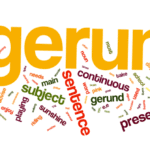Pronoun
A pronoun is something that helps us to replace a noun in a sentence. Pronoun is used to help in making our language less awkward with same words being repeated again and again. A few cases of pronouns incorporate I, me, mine, myself, she, her, hers, herself, we, us, our own and ourselves. He, him, his and himself, for instance, all allude to a male individual or something having a place with him.
- They, them, theirs and themselves all allude to a gathering or something having a place with a gathering, et cetera.
Types of Pronoun
Truly there are various kinds of pronouns, each filling an alternate need in a sentence.
Personal Pronouns
Personal pronouns can be the subject of a condition or sentence. They are: I, he, she, it, they, we, and you. Case: “They went to the store.”
Personal pronouns can likewise be objective, where they are the question of a verb, relational word, or infinitive expression. They are: me, her, him, it, you, them, and us. Illustration: “David gave the blessing to her.”
Subjective Pronouns
Subject pronouns are regularly (however not generally) found toward the start of a sentence. All the more correctly, the subject of a sentence is the individual or thing that experiences the verb.
- I owe that individual 3,000. – I am experienced that obligation. (I is the subject pronoun)
- He and I had a battle. – This sentence has two subjects since he and I were both associated with the battle.
- He broke my kneecaps. – You get the thought.
- To him, I should now pay my youngsters’ school reserves.
If you’ll see, the verb in this sentence – the activity – is “pay.” Although I isn’t toward the start of the sentence, it is the individual experienced the activity and is, thusly, the subject.
Objective Pronouns
By complexity, protests and question pronouns show the beneficiary of an activity or movement. They come after verbs and relational words (to, with, for, at, on, close to, under, around, and so on.).
- The person I acquired cash from demonstrated to me a crowbar and instructed me to pay him instantly.
- I implored him for additional time.
- He said he’d given me enough time as of now
- I attempted to evade the crowbar, however he hit me with it at any rate.
- Simply at that point, the police arrived and captured us.
Subject versus Protest Pronouns
There is regularly disarray over which pronouns you should utilize when you are one portion of a double subject or protest. For instance, should you say:
- “Me and him had a battle.” or “He and I had a battle?”
- “The police captured me and him.” or “The police captured he and I?”
A few people will disclose to you that you should dependably put the other individual first and allude to yourself as “I” since it’s more appropriate, however those individuals aren’t right. You can put the other individual initially out of obligingness, yet you ought to dependably utilize the right pronouns (subject or question) for the sentence.
The right sentence is, “The police captured me and him.”
Possessive Pronouns
Possessive pronouns indicate proprietorship. The term covers both possessive pronouns and possessive descriptors.
Total possessive pronouns – mine, yours, our own, theirs, his, hers, its – are genuinely pronouns since they allude to a formerly named or comprehended thing. They remain solitary, not took after by some other thing. Investigate this sentence:
- You have your indecencies, and I have mine.
There are two sorts of pronouns here: individual (you/I) and possessive (mine). There’s likewise a possessive descriptive word (your).
“Your” is trailed by the thing indecencies, so in spite of the fact that we realize that your alludes to you, it isn’t the thing or the thing substitute (pronoun). Indecencies are the noun. In the second 50% of the sentence, in any case, the thing and the possessive modifier have both been supplanted with single word – the pronoun, mine.
Indefinite Pronouns
These pronouns don’t point to a specific things, yet allude to things or individuals when all is said in done. Some of them are: few, everybody, all, a few, anything, and no one.
- Everybody is as of now here.
Relative Pronouns
These pronouns are utilized to associate a statement or expression to a thing or pronoun. These are: who, whom, which, whoever, whomever, whichever, and that.
- The driver who ran the stop sign was indiscreet.
Intensive Pronouns
These pronouns are utilized to underline a thing or pronoun. These are: myself, himself, herself, themselves, itself, yourself, yourselves, and ourselves.
- He himself is his most noticeably bad pundit.
Demonstrative Pronouns
There are five demonstrative pronouns: these, those, this, that, and such. They concentrate consideration on the things that are supplanting.
- Such was his comprehension.
- Those are absolutely amazing.
Interrogative Pronouns
These pronouns are utilized to start an inquiry: who, whom, which, what, whoever, whomever, whichever, and whatever.
- What are you conveying to the gathering?
Reflexive Pronouns
There is one more sort of pronoun, and that is the reflexive pronoun. These are simply the ones that end or “selves.” They are question pronouns that we utilize when the subject and the protest are a similar thing.
- I let myself know not to spend all my cash on new shoes.




